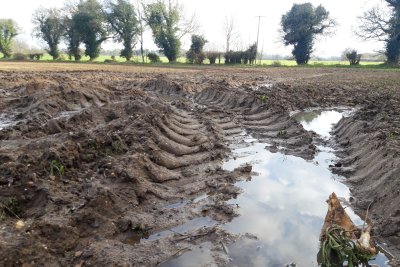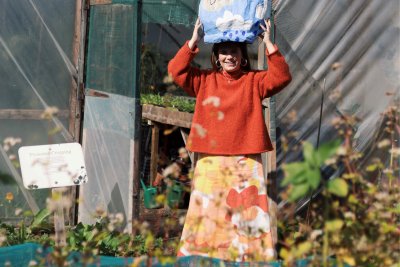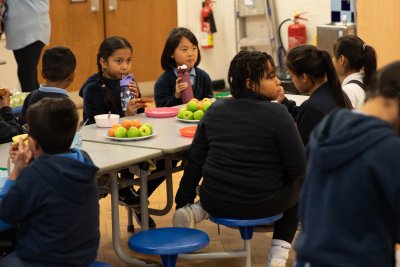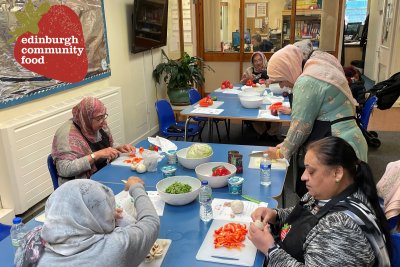Blogs • Children's Food Campaign
Recipe for Change guest blog: Food Active, on tackling the postcode lottery for good health
Each week across March we’ll be hearing from one of our Recipe for Change supporters about why the campaign is important to them and the people they work with. This week Beth Bradshaw, from Food Active, talks about the role of food and drink levies in reducing health inequalities, so that all children can access healthy food wherever they are.
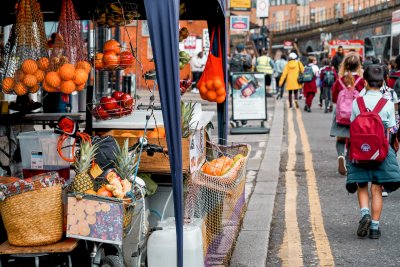
Reducing disparities in health is the golden thread to much of the work we do at Food Active. Inequalities are widespread in many of the areas we work in and wide gaps in health outcomes persist between the North and South of England.
Data shows that children living in the North of England are at a disadvantage to their peers living in the South. Last year, a report published by Health Equity North found that babies born in the North had a life expectancy of at least 1 year less than the English average. The Child of the North report also found that due to poverty and lack of investment, children across the North of England are worse across the board when compared to their peers – from risk of death in childhood, to obesity, mental health, and education, and the Covid-19 pandemic and cost of living crisis have made the situation worse.
We strongly believe that good health should not be a postcode lottery, and regardless of where they are born, children should have equal access to healthy food and opportunities to be physically activity. At present, this is simply not the case. But the good news is that there are things that can be done to help turn the tide.
Local to national action
Many of the local authorities we are working with not just in the North, but across England, are doing some fantastic work to prioritise child health. This includes rolling out universal free school meals to all primary school children, implementing healthier advertising policies to take less healthy food out of the spotlight across council-owned advertising space, working with planning departments to restrict high concentrations of fast-food outlets in areas already experiencing higher levels of children living with obesity, increasing access to green spaces and more.
However, there are only so many levers local authorities can influence; and some drivers of poor diet and physical inactivity are simply beyond their control, undermining some of the good work happening locally.
The government are taking action at a national level to support vulnerable families in accessing healthy food; including the Healthy Start scheme, Free School Meals provision, the Holiday Activities and Food Programme. However, there is more that can be done at a population level to help to reduce dietary inequalities. Levers, such as working with the food industry to make products healthier through reformulation and introducing levies on less healthy food and drink, require leadership and commitment from national government but the benefits can be seen locally.
The Soft Drinks Industry Levy is a great example of this; removing a significant amount of sugar from local supermarket shelves and has been linked to a reduction in cases of obesity in year 6 girls (reductions were also seen greatest in girls living in the most deprived areas) and cases of under-18s being admitted to hospital for a tooth extraction due to tooth decay; initially, the revenue raised helped to fund physical activity schemes and boost free breakfast programmes in primary schools across the country – so overall a win-win for child health. This is a successful approach that we would like to see replicated to other less healthy food and drink items.
We feel very strongly that the revenue raised from such levies should be reinvested back into promoting child health locally. The public health grant has been cut by 27% on a real terms per person basis since 2015/16; the grant is used to provide a range of vital preventative services that help to promote health and well-being including the provision of children’s services, weight management and obesity prevention and public health programmes and interventions. Revenue raised could provide a much-needed boost to funding locally.
This is why Food Active is supporting the Recipe for Change campaign; to take steps to make the food we eat healthier and help to make our local food environments a healthier place for our population to live.
Find out more about the campaign here
About Food Active
Food Active is a healthier weight programme of work delivered by the public health charity, Health Equalities Group. We work at a local, regional and national level to create environments that make healthy food and physical activity more accessible, for everyone.
Whilst we have grown to work in regions across England, Food Active originated in the North West, and we are funded by a network of local authorities to support them locally to address healthy weight priorities whilst advocating for national action to bolster local good practice.
Published Wednesday 6 March 2024
Children's Food Campaign: Better food and food teaching for children in schools, and protection of children from junk food marketing are the aims of Sustain's high-profile Children's Food Campaign. We also want clear food labelling that can be understood by everyone, including children.
